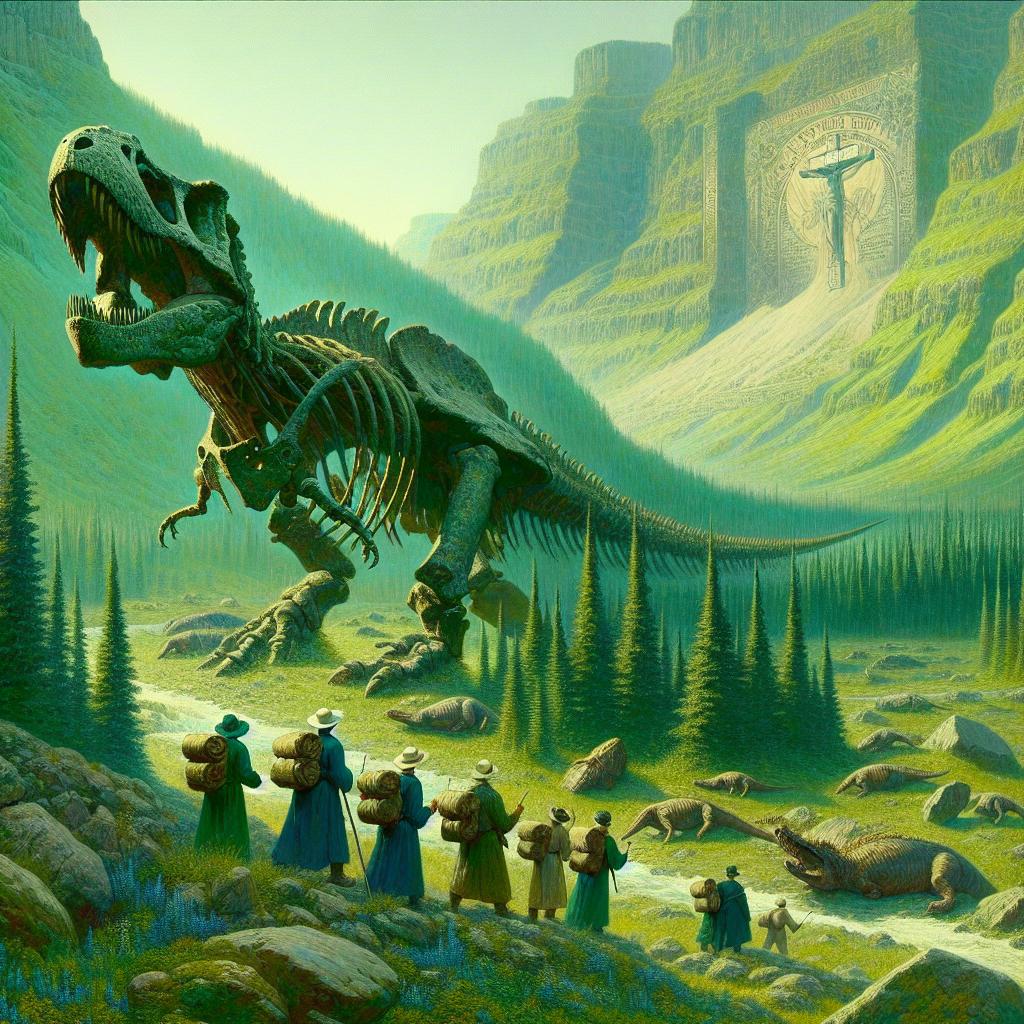
Revealing Schweitzer's Dangerous Discovery: Unveiling the Truth Behind Christian Faith
Published: 01 August 2024
Schweitzer's Dangerous Discovery: Unraveling the Truth about Dinosaur Tissue
In recent years, the scientific community has been captivated by the groundbreaking discoveries made by Dr. Mary Schweitzer regarding the existence of fresh dinosaur tissue. This revelation has raised eyebrows and sparked intense debates among scientists, particularly those who adhere to a young-earth creationist perspective. Dr. Schweitzer's findings challenge the widely accepted notion that dinosaurs became extinct approximately 65 million years ago. In this article, we will explore eight key questions surrounding this topic and provide biblically grounded answers that shed light on the truth about dinosaur tissue.
1. What is the significance of Dr. Mary Schweitzer's discoveries?
Dr. Mary Schweitzer's discoveries of soft, fresh-looking tissue inside a Tyrannosaurus rex femur have had far-reaching implications for our understanding of dinosaurs and their alleged extinction millions of years ago. The presence of elastic tissue fragments and fibrous structures in these bones contradicts the prevailing belief that such features could not have survived for millions of years. These findings challenge the narrative that dinosaurs lived in a distant past, prompting a reevaluation of the timescale of Earth's history.
2. Why is Dr. Schweitzer's work considered dangerous?
Dr. Schweitzer's work has been deemed "dangerous" because it challenges the established scientific paradigm that promotes an ancient age for dinosaurs and the Earth itself. Her discoveries have electrified creationists who view them as evidence against the prevailing notion of millions-of-years-old dinosaur fossils. This clash between Dr. Schweitzer's findings and mainstream scientific beliefs has ignited controversy within the scientific community, leading to skepticism and resistance from many scientists who find her conclusions difficult to accept.
3. How has Dr. Schweitzer's work been received by the scientific community?
Dr. Schweitzer faced significant obstacles in getting her work published in scientific journals due to the reluctance of many reviewers to accept her findings. Some reviewers even dismissed her data without considering its implications, revealing a bias against her discoveries. This resistance highlights the challenge faced by scientists who challenge the prevailing paradigm. Despite these hurdles, Dr. Schweitzer's work has garnered attention and sparked debates within the scientific community, indicating that her findings are not easily dismissible.
4. How does the preservation of dinosaur tissue challenge conventional beliefs?
The remarkable preservation of dinosaur tissue raises fundamental questions about the long-standing belief that such tissues could not survive for millions of years. The quick degradation of blood samples stored on shelves demonstrates the fragility of organic materials over time. If dinosaurs truly became extinct millions of years ago, it is difficult to reconcile the presence of elastic tissue fragments and fibrous structures in their fossils. This suggests that an alternative explanation, such as rapid preservation under catastrophic conditions, may better align with the observed evidence.
5. Does Dr. Schweitzer's faith impact her research?
While Dr. Schweitzer identifies as an evangelical Christian, it is important to note that her views on Scripture and the interpretation of scientific findings may differ from a conservative biblical perspective. Her belief in both millions of years and God's involvement in an extended process of creation reflects a more liberal approach to the Bible. However, she acknowledges attending conservative churches to learn about God and the Bible, recognizing the difference in emphasis between liberal and conservative church communities.
6. How should Christians approach Dr. Schweitzer's discoveries?
As Christians, we must approach scientific discoveries with discernment and a commitment to understanding God's word accurately. While Dr. Schweitzer's discoveries are fascinating, they do not necessitate abandoning the biblical account of a recent creation. It is crucial to recognize that interpretations of scientific data can vary, and the pursuit of scientific knowledge should not compromise our faith in the authority and inerrancy of Scripture.
7. Why are some Christians critical of Dr. Schweitzer's work?
Some Christians express concern about Dr. Schweitzer's interpretations and conclusions because they deviate from a strict biblical understanding of a young Earth and a global Flood. While it is essential to engage in respectful dialogue and critique, it is equally important to recognize that genuine believers can hold differing views on scientific matters without compromising their faith in Christ. We should approach disagreements with grace, seeking to understand one another's perspectives while remaining steadfast in our commitment to biblical truth.
8. What lessons can we learn from Dr. Schweitzer's experiences?
Dr. Schweitzer has faced criticism and resistance from both the scientific community and fellow Christians due to her groundbreaking discoveries. Her experiences remind us of the challenges that arise when scientific findings challenge deeply ingrained beliefs. As believers, we must approach such situations with humility, recognizing that our understanding of God's creation is limited. We should strive for open-mindedness, willing to adjust our views when presented with compelling evidence, while remaining anchored in our faith in Christ.
In conclusion, Dr. Mary Schweitzer's discoveries regarding fresh dinosaur tissue have sparked significant debate within the scientific community and among Christians. While her work challenges conventional beliefs about dinosaur extinction and preservation, it is essential to approach these findings with discernment and a commitment to biblical truth. By engaging in respectful dialogue and seeking to understand different perspectives, we can navigate these discussions with grace and humility, ultimately deepening our understanding of God's creation.
